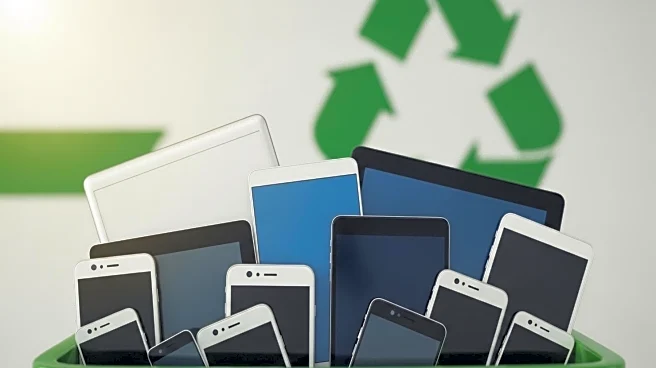What is the story about?
What's Happening?
Major retailers such as Best Buy, Staples, and Office Depot are providing free recycling services for old electronics, including computers and printers, to help reduce environmental harm. According to a recent survey by CNET, nearly a third of individuals are holding onto outdated electronics due to the perceived difficulty of disposal. These retailers are simplifying the process by accepting e-waste directly at their stores, with some offering incentives like gift cards. The initiative aims to prevent harmful components from ending up in landfills, which is both environmentally damaging and illegal in certain areas.
Why It's Important?
The initiative by these retailers is significant as it addresses the growing issue of e-waste, which poses environmental risks due to toxic materials found in electronics. By offering free recycling services, these companies are encouraging responsible disposal practices, potentially reducing the volume of e-waste in landfills. This move not only benefits the environment but also aligns with increasing consumer demand for sustainable practices. It highlights a shift towards corporate responsibility in environmental conservation, potentially influencing other sectors to adopt similar measures.
What's Next?
As awareness of e-waste issues grows, more consumers may be motivated to recycle their old electronics, leading to increased participation in these programs. Retailers might expand their recycling services or offer additional incentives to further encourage responsible disposal. Additionally, there could be a push for more stringent regulations on e-waste management, prompting other companies to implement similar recycling initiatives. The success of these programs could also lead to collaborations with environmental organizations to enhance recycling efforts.
Beyond the Headlines
The broader implications of this initiative include potential advancements in recycling technology and infrastructure, as demand for efficient e-waste processing grows. It may also spark discussions on the lifecycle of consumer electronics, encouraging manufacturers to design products with sustainability in mind. Furthermore, this could lead to increased public awareness and education on environmental issues, fostering a culture of sustainability and responsible consumption.















